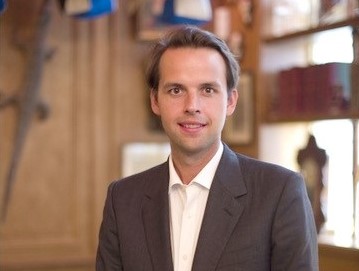
Q&A: Charlie Gilkes, Inception Group
Charlie Gilkes is founder and director of Inception Group, the experiential hospitality group behind My Foggs, Barts, Cahoots, Bunga Bunga & Maggie’s. Hugh Jones speaks to Gilkes about recovery, Covid enforced innovation, and the importance of customer experience as the trade re-opens.
How do you feel about the future recovery for the on-trade, given all that it’s gone through this year?
I’m optimistic about the medium to long term recovery of hospitality. There was a lot of talk at the beginning of people socialising on zoom and virtually, but as time goes on people realise that actually, nothing beats face to face interaction. Yes, there’s going to probably be more flexibility around working but I think people want the collaboration of being in an office with other people. It will recover, though sadly, many businesses won’t make it through.
The government support doesn’t come close to covering the fixed costs. In our risk assessment of the business, never could you imagine something where we were forced to close for the best part of a year and have such punitive restrictions placed on you when you can reopen. It made life very, very difficult indeed. In a city like London, we need people to be travelling again, we need tourism, but that might not happen for a long time. Hopefully in the medium term, if the theatres can reopen there’s going to be a lot more national travel. I think people have missed live performance, live music, live theatre. If we can get the UK up and running, even if we can’t get the international travel, that would be a start.
Will more operators look at opening hospitality businesses in the suburbs and residential areas?
I think there will be a short term growth of people staying local but London has gone through the Blitz, a Great Fire, it’s such a brilliant city – the centre of London is always going to be the centre of London. Even this summer while working, Soho was buzzing and people forget that geographically if you live in north London and you’re seeing friends from south London, central London is always going to be an obvious meeting ground. I think there will be more people who realise they can work from home more and maybe commute from outside London.
I think we’ll see more of that and I think there’ll be opportunities in the suburbs but long term, I have full faith that London will recover. I think possibly experience is going to be even more important. It’s about giving people a good enough reason to come out. You’re competing against Netflix at home, restaurant quality food that can now be delivered, and that’s why for us, experience has always been important and now has become even more important. You probably can’t rely on passing traffic as much as you could in the past.
All your venues have an experiential side that draws people in. Is it going to be a case of more of the same? Or have you got more up your sleeve?
We’ll ramp it up. We just developed a Great Escape room, a cocktail making class and experience at Cahoots, and we’re going to be doing more of those sorts of things, really taking our shows from Bunga Bunga to the next level. I think it’s become even more important because that’s what people have missed. They’ve missed getting out and doing things, being entertained. People are a bit sick of their TV and looking at their drinks cabinet, and getting a takeaway.
How do you think Brexit will affect hospitality?
The thing I’m most nervous about is recruitment. One of the most terrifying things I’ve seen is 700,000 people have left London. Are they going to be able to come back? That’s what worries me. I think recruitment is going to be the main thing. People haven’t really spoken about Brexit as much recently because the pandemic has taken over everything in a such a way that it hasn’t seemed such a major issue in comparison.
When re-opening last time, you had innovative ideas like beekeeper suits for staff, inflatable rings for people to wear to encourage distancing, mannequins at tables. Will you be doing more?
We’ll be sure to have our phones on the tables in Bunga Bunga [allowing guests to phone the other tables to chat] because people have loved it. We’ve been doing these Cahoots cocktail ration packs, which have an AR augmented reality code scan, and that’s something we’ll keep doing. There are people who can’t get to you who are in different countries or other parts of the country who want to send their friends something for their birthday, and I think they’ll keep wanting to do that post lockdown so hopefully there will be some positives that will come out of this otherwise depressing, gloomy period.
When customers come back, do you think they’ll show the industry a lot of love?
I hope so. The other big silver lining for me has been how the whole sector has come together, and it’s been amazing to see support from competitors who’ve become comrades. I feel like no-one has celebrated anyone else’s failure. I’m quite active on Twitter and I’ve had a lot of independents contact me, and I’ve helped a lot, and had a lot of industry veterans who’ve been helping me, advising me and mentoring me. It’s been lovely to see that the sector has been looking out for each other and genuinely wanting to see each other succeed.
I feel like we’ve all been through a war together. I think it’s been a very bonding experience and that we’re all looking forward to getting together and having a very large drink. We’re sociable creatures, we all can’t wait to be in a busy bar or club and I think there’ll be much better days ahead. Coronavirus permitting…




